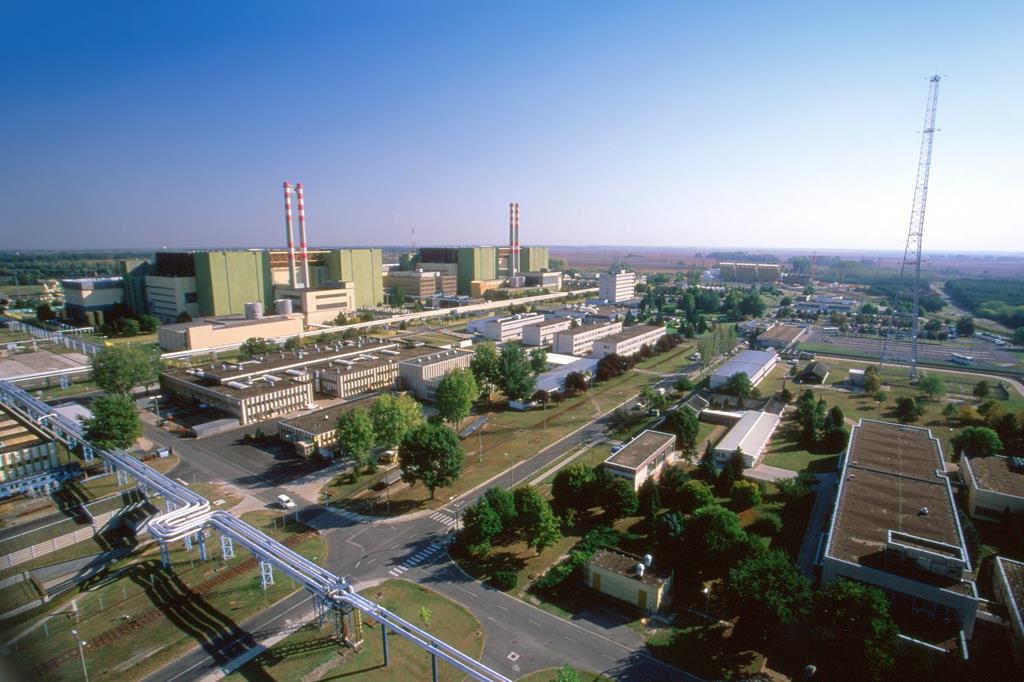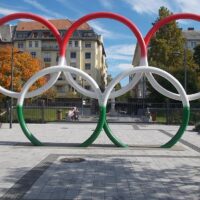Serbia’s big energy move: Partnering with Hungary’s Paks Nuclear Plant
The Paks Nuclear Power Plant plays a pivotal role in Hungary’s energy sector as its sole operational nuclear facility. Comprising four VVER-440 reactors built with Soviet-era technology, Paks generates nearly half of Hungary’s electricity. Over the years, the plant has undergone significant upgrades, boosting its capacity to 2,000 MW.
The future of Hungarian nuclear energy lies in the Paks II expansion project, which aims to construct two additional 1,200 MW reactors designed by Russia. Funded through a combination of a Russian state loan and Hungarian resources, this project has received European Commission approval. The primary aim is to enhance energy independence as the existing reactors approach the end of their operational lifespan by the late 2030s.

Photo: FB/Paks NPP
The benefits of nuclear energy
Hungary’s nuclear ambitions are not without challenges. While nuclear energy is promoted as a cost-effective and environmentally friendly solution, the Paks II project has faced criticism over financial transparency and potential cost overruns. Critics are also concerned that the focus on nuclear energy might divert funding away from renewable energy initiatives. Furthermore, public support for nuclear energy has waned since the Fukushima disaster, further complicating the discourse.

Photo: FB/Paks NPP
The Paks Nuclear Power Plant’s new partner: Serbia
According to Szabad Európa, Serbia is looking to diversify its energy portfolio, with President Aleksandar Vučić recently revealing plans to acquire up to a 10% stake in Hungary’s Paks Nuclear Power Plant. During a visit to Budapest, Vučić proposed the idea to Hungarian Prime Minister Viktor Orbán, emphasising that Belgrade would be prepared to pay the full market price for the stake. However, the Hungarian government has yet to respond.
This move aligns with Serbia’s broader goal of reducing its heavy reliance on coal-fired power plants and Russian natural gas. Despite lacking its own nuclear power facilities, Serbia has been making strides in energy diversification. The country has expanded its gas network, including connections to the Bulgarian pipeline, which offers access to Azerbaijani gas, and the LNG terminal in Alexandroupoli, Greece.
Serbia’s interest in the Paks Nuclear Plant could signal a new chapter in Hungarian-Serbian collaboration. However, it remains unclear whether Vučić’s proposal pertains to the existing Paks plant or the upcoming Paks II project. For Hungary, the potential involvement of a foreign partner introduces strategic and geopolitical considerations, especially given the Russian ties underpinning the Paks II project. Serbia’s overture not only reflects its pragmatic approach to energy diversification but also highlights the evolving dynamics of regional energy politics. As Hungary evaluates this proposal, the outcome could reshape the energy landscape in the Balkans and beyond.
This is not the first time a foreign country has become involved with the Paks Nuclear Power Plant. As we detailed in a previous article, both France and Russia are also set to contribute by supplying fuel rods for the facility. This underscores the growing international collaboration centred on the plant, further establishing it as a focal point of multinational efforts in the energy sector.
Read also:
please make a donation here
Hot news
Microbusinesses in Hungary to become eligible for regulated electricity prices
The big comparison: Is the Vienna Christmas market cheaper than the Budapest one?
Capping service fees: A new era for Hungary’s catering industry
Hungarian government presses for effective steps against imports of fake honey in Brussels
Rammstein’s Till Lindemann to rock Budapest in 2025
Hungarian EU enlargement commissioner: Ten years of enlargement advances achieved in a single term




